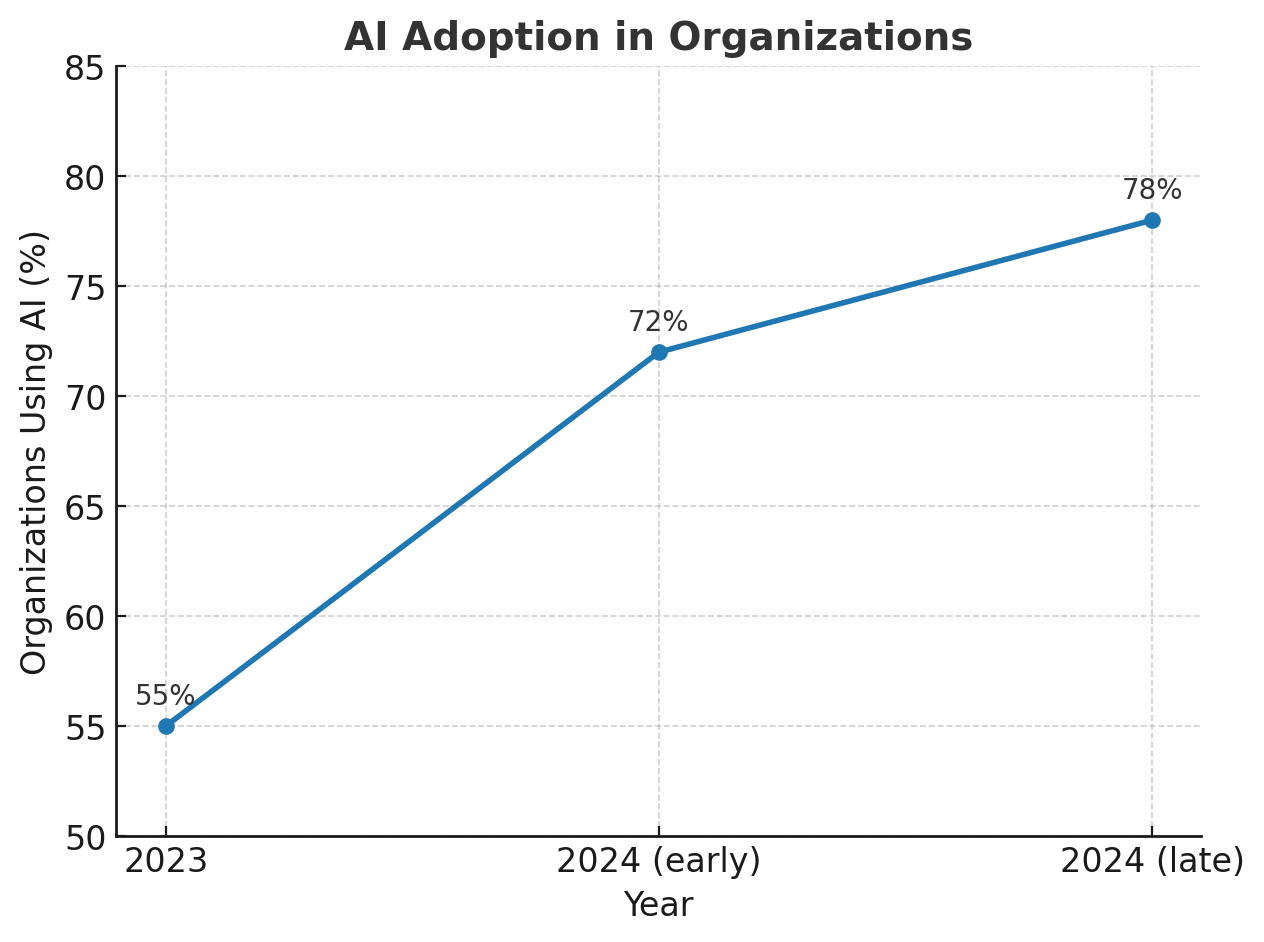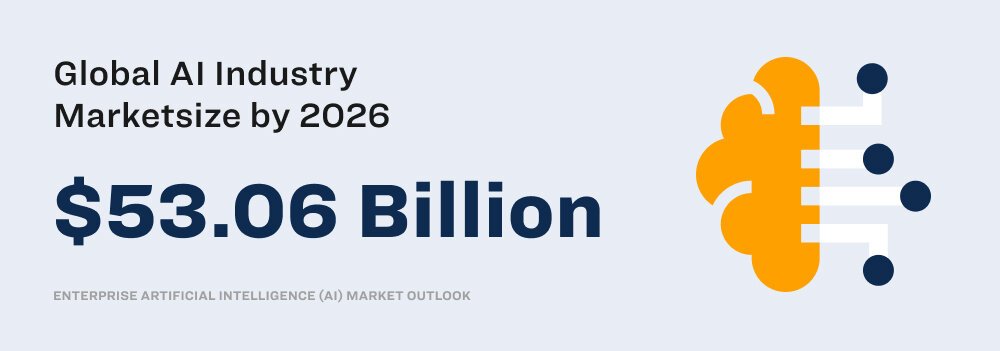blog
How Easy Is It To Implement AI In Your Business?
By Siddhant Chaudhary Business Digital transformation AI and ML August 20, 2025

Today, the challenge for every business owner today boils down to one question: how do you achieve growth and agility with AI?

Further reading: Latest Software Development Trends
However, AI isn’t one thing. It could be:
Basic use: A Generative AI chatbot for customer service.
Intermediate use: Using AI to analyze sales trends or automate routine tasks.
Advanced use: Building custom AI models to predict demand, optimize logistics, or personalize products.
The Bare Minimum Requirements:
To implement AI, any business will need:
A clear problem: Don’t start with “We want AI.” Start with “We want to reduce customer wait times.”
Data: AI learns from data. The cleaner and larger the dataset, the better.
Tools: Prebuilt platforms (like ChatGPT, Salesforce AI, or HubSpot AI) are simple to plug in. Building custom models is much harder.
People: Either hire AI/tech talent or use external vendors.
Why Implementing AI in Business can be Challenging?
AI is a platform, not a shortcut.
The tech is exciting, but the fundamental founder tasks remain the same: discover customer problems, validate solutions, iterate.
Simply switching your product to call OpenAI (or "add AI”) won’t change your startup’s fate if you haven’t done the core work.
Meaning: Don’t treat AI as a labeling trick. Use it where it actually reduces friction or improves outcomes.
With that said, here are the potential hurdles you’ll need to overcome to implement AI.
- Financial Reality
AI implementation, depending on scale will require expensive hardware, advanced software, and talent that doesn’t come at bargain rates. Every dollar invested in AI must tie back to revenue, efficiency, or a competitive edge. Data as the Fuel
AI is only as strong as the data powering it. Scattered, incomplete, or biased data produces flawed outcomes. To unlock real business value, we need scalable processes for cleaning, labeling, and governing data so the insights we generate are both accurate and actionable.Infrastructure Readiness
Modern, cloud-first systems make AI adoption smooth. Outdated infrastructure turns it into surgery on a moving patient. A retailer with cloud-based inventory can plug in AI for demand forecasting immediately, while one still trapped in spreadsheet purgatory will stall.People and Culture
AI isn’t just about hiring data scientists. Teams need to understand it, trust it, and adapt to it. Fear of job loss and resistance to change are real barriers. The goal is to position AI as a tool that enables people to work smarter, not as a replacement that sidelines them.Trust, Ethics, and Risk
AI can’t be a black box we hope works out. Regulators, customers, and stakeholders demand fairness, transparency, and accountability. Bias, privacy violations, or security lapses don’t just create legal headaches, they directly damage trust, reputation, and the bottom line.

Further inspiration: 10 Brilliant Examples of Businesses Using AI
Making It Easy to Implement AI-Driven Efficiency
The Enterprise Artificial Intelligence (AI) Market Outlook projects the global AI industry will reach $53.06 billion by 2026. For organizations, adopting AI means more than plugging in software. It’s about aligning technology with real business needs and workflows.
Key Principles for Success
Define clear goals: Start with the outcomes you want such as - sales improvement, faster order times, productivity gains. Align AI features with these end goals.
Focus on real problems, not buzzwords: Don’t just rebrand a generic chatbot. Solve a specific workflow problem where AI makes measurable improvements.
Leverage domain expertise: The best AI solutions come from lived experience. People who know the daily grind of their tasks can spot where AI helps most.
Observe users closely: Spend time with potential users. Watch for repetitive clicks, copy-pasting, or constant context-switching. These are prime opportunities for automation.
Target areas with repetitive tasks: Sectors like healthcare admin, legacy enterprise workflows, security, and localization are especially fertile for AI adoption.
Prototype quickly: Build simple flows such as an LLM-powered tool to cut one repetitive task. Then measure tangible results like time saved, errors reduced, or revenue gained.
Practical Steps for AI Implementation
Invest in the right software: Choose AI platforms with flexible architecture that can be integrated with your existing systems in place.
Evaluate internal capabilities: Decide whether your business has the in-house expertise or needs external partners to implement and maintain AI.
Measure and refine: Measure your AI system’s impact on KPIs like order times, sales, productivity, etc.. Use the data to improvize and scale.
Wrap Up: Making AI Easier for Your Business
AI is a foundational platform shift with huge opportunity, but it is not a magic relabel. Successful founders don't allow shallow AI pivots; they do the real leadership work and then apply AI where it actually creates real value.



